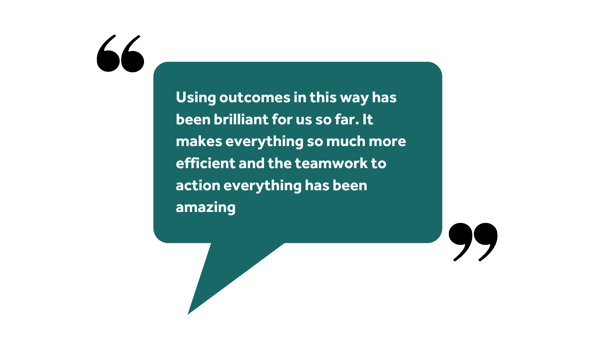Sheffield Children’s NHS Trust pilot: ESQ routine outcome measurements via text
Obtaining feedback from children and young people and their families is often a key priority for services wanting to understand the successes and challenges of the service user experience. Many services use the Experience of Service Questionnaire (ESQ, formerly CHI-ESQ) to gather this information, often with limited response. CORC member, Sheffield Children’s NHS Trust piloted sending the ESQ via text with the aim of increasing response rates, following a successful trial of sending routine outcome measures via text to children, young people and their families last year. We met with Jessica Makepeace and Elizabeth Veeren from the Outcome Measures Team, and Marc Smith from the Trust’s SystmOne Team to find out more about the pilot.
The pilot was part of a drive to move from paper to electronic outcome measurement. This was prompted by a desire to improve service consistency, put less onus on individual practitioners and staff, and to give children, young people and their families the space and time needed to complete questionnaires. Anecdotal feedback on the initial texting pilot for other outcome measures was positive, with 71% service users wanting to continue receiving them via text. Positive feedback was also received by the clinicians involved, with one team leader saying, “Using outcomes in this way has been brilliant for us so far. It makes everything so much more efficient and the teamwork to action everything has been amazing”. The success of the initial trial prompted a similar approach to be taken with the ESQ.

The ESQ pilot
Setting up the ESQ texting pilot required the input of both the Outcome Measures Team and the Systems Team to ensure that the transition to using electronic measures was smooth. Setting up the process on their Electronic Health Record (EHR) system was a key element. One part of the service’s approach is to take an annual ESQ sample to drive forward service improvement. For the pilot, service users were selected on the basis that they had two appointments within one month of the previous year, to ensure a fair reflection of the service. This aspect was managed using scheduled appointments from the service’s EHR system. The ESQ was sent via text to the selected cohort in November 2022, with feedback collected over the month.
The ESQ texting pilot was successful in achieving its aim of increasing responses at one of their sites, with a 56% increase in comparison to 2021. Sheffield Children’s NHS Trust are continuing with the pilot, with the aim of introducing further routine outcome measures to be assessed online.
There are some learnings from this pilot that the team will consider as they introduce further outcome measures. As aforementioned, the texts were sent to a cohort of young people that had been seen in the last month; because the system had been set up to send texts separately to those seen at different sites, this meant that those who had been seen at both sites received double the number of texts. This may have discouraged some people from completing the measures as it could have been viewed as ‘spam’.
There are different versions of the ESQ, the Parent/Carer, 12-18 and 9-11 forms. In this pilot, all three forms were sent to each patient in the selected cohort. This meant that some of the forms were completed incorrectly (i.e. a young person in the 12-18 age bracket filled in the 9-11, or a parent filled in the 12-18 form because their child is within that age range). To avoid this happening in future, they propose to send only the relevant questionnaires to each young person and be more explicit in the SMS as to which form should be completed by the young person, and which form by the parent/carer.
A list of measures that can be completed electronically is available here, along with further information about using outcome and experience measures remotely.
If your service would benefit from support with using outcome measures, get in touch with the team at corc@annafreud.org
Rachael Grant